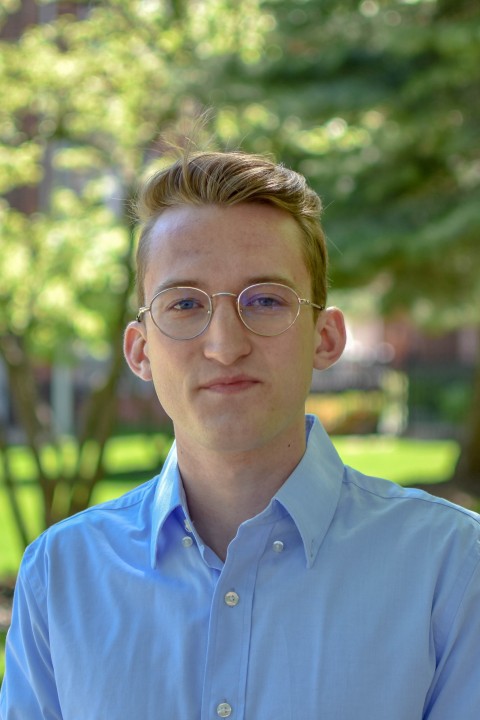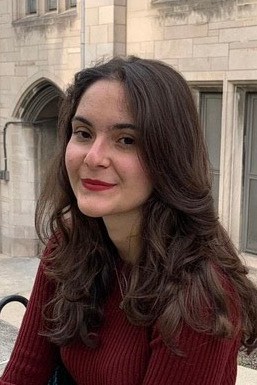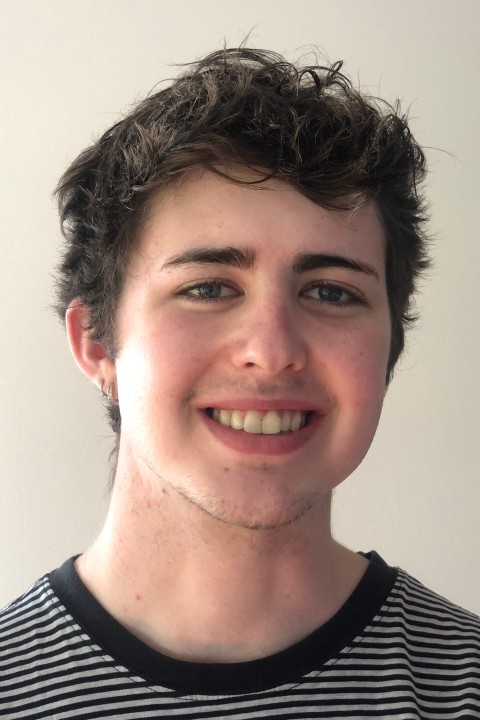What are the origins of mass incarceration in America? What emotions drive presidential rhetoric? What is behind the science of ceramics? With help from the College Research in the Arts, Social Sciences, and Humanities (CRASSH) grant program and UChicago faculty members, undergraduate researchers are aiming to answer these questions and more.
The grant program began in 2019 as a collaborative initiative supported by the Humanities and Social Sciences Collegiate Divisions, and the College Center for Research and Fellowships (CCRF). It awards $5,000 to undergraduate students who are participating in faculty-driven research and complements their formal studies by inviting them to participate in the scholarly work of the University.
“This program allows our arts, humanities and social sciences students to apprentice alongside UChicago’s remarkable faculty,” said Nichole Fazio, executive director of CCRF. “They learn the craft of research and creative inquiry, contribute to faculty scholarship and develop some of the most valuable transferable skills provided by an undergraduate education – how to ask questions, how to assess information and how to share the knowledge produced with a broader audience. Their CRASSH experience certainly sets them up for success in future postgraduate endeavors; more importantly, it helps prepare them to engage creatively, critically and effectively in our rapidly advancing Information Age.”
Below, hear from recent CRASSH scholars on their research and what they hope to explore next.
Delving into the roots of contemporary mass incarceration
Fourth-year Meera Santhanam said that her research has added “new tools” to her advocacy tool belt.
“Coming into this work, I was interested in racial justice and knew a lot of paths I could take through policy and politics,” said Santhanam, who majors in political science and minors in chemistry and near eastern languages and civilizations. “Working with Asst. Prof. Clegg gave me data avenues to look at how to reform criminal justice in the U.S. today through data analytics.”
Under the guidance of Collegiate Asst. Prof. John Clegg, Santhanam researches the racialized origins of mass incarceration in the American South. Specifically, she uses the computer programming language R to analyze incarceration rates by race in the 19th century. She also investigates the history of convict leasing in various Southern states.
Santhaman said that the research has been illuminating, as she intends to spend her career working to help dismantle the racial inequities of the criminal justice system as a civil rights lawyer.
“Our research aims to underscore these connections and illuminate the extent to which racism has been ingrained in US carceral practices from the very inception of the penitentiary system,” she said. “This research position has further cemented my interest in racial justice work, and moreover, given me valuable coding skills. Additionally, it has shown me the power of data in raising awareness surrounding racial injustice and building support for systemic change.”
Uncovering secrets in international relations
Austin Christhilf, a fourth-year majoring in political science and economics, has also sharpened his quantitative and historical research skills thanks to a CRASSH grant.

“My project let me explore the various ways one can conduct computational sentiment analysis on text, an area I had minimally been exposed to prior,” Christhilf said.
Christilf works with Austin Carson, assistant professor in the department of political science, to study the politics of secrecy in international relations.
“The project I am broadly involved in is building a dataset of declassified Presidential Daily Briefs from the 60s and 70s, including extracting text and coding features and topics within each brief,” he said. “My personal project with this data involves looking at the emotive characteristics of these intelligence briefings to find how these vary temporally and across states, regions and events.”
Christilf also said that working with Carson has made him consider several paths for graduate school in a few years.
“The CRASSH program has allowed me to garner independent, but supervised, research outside of my thesis, which is invaluable experience,” he said.
An investigation into memories and decision-making
Third-year Defne Buyukyazgan has also been thinking about words, actions, and emotions — but from a neuroscience perspective.

Buyukyazgan works with Asst. Prof. Akram Bakkour in the Bakkour Memory and Decision Lab, which uses cognitive neuroscience tools to research how people use memories to make decisions.
“My research is about how visual attention guides some specific types of decision tasks,” Buyukyazgan said, describing the work she’s been doing for the past six months. “My [CRASSH grant] supports meaningful research opportunities that otherwise would have had to be done on a voluntary basis.”
Buyukyazgan, a double major in statistics and psychology, said her six months of research have greatly influenced her postgraduate interests.
“I was thinking about doing graduate work in cognitive or computational neuroscience, so getting to work in a lab led by a cognitive neuroscientist has exposed me to methods and the literature that revolves around my newly found interests,” Buyukyazgan said
A marriage of chemistry and art
Everett Black, a fourth-year visual arts major and architectural studies minor, researches ceramic materials and processes alongside Laura Letinsky, a photographer and professor in the department of visual art.

Black said that the most interesting part of his work is studying the interaction of artistic expression and chemistry in the ceramics process.
“Unlike painting or more traditional sculpture, there is little indication of what the product will look like from its beginnings, there is more alchemy to it,” he said. “Like baking, you mix your ingredients and put it in the 'oven' hoping that it comes out, and only through repetition can knowledge of the materials be acquired. This provides rich questions around the role of expression in ceramics.”
Black’s research has broad applications for his future career in the arts, no matter what that is, he said.
“The actual technical ability I've been learning since I started working for Letinsky this summer has blossomed,” he said. “These are things that I can carry with me throughout my career in the arts.”
For more information on how to apply for a CRASSH grant, visit: https://ccrf.uchicago.edu/undergraduate-research/crassh-research-scholars. Applications are accepted in early October and early January.